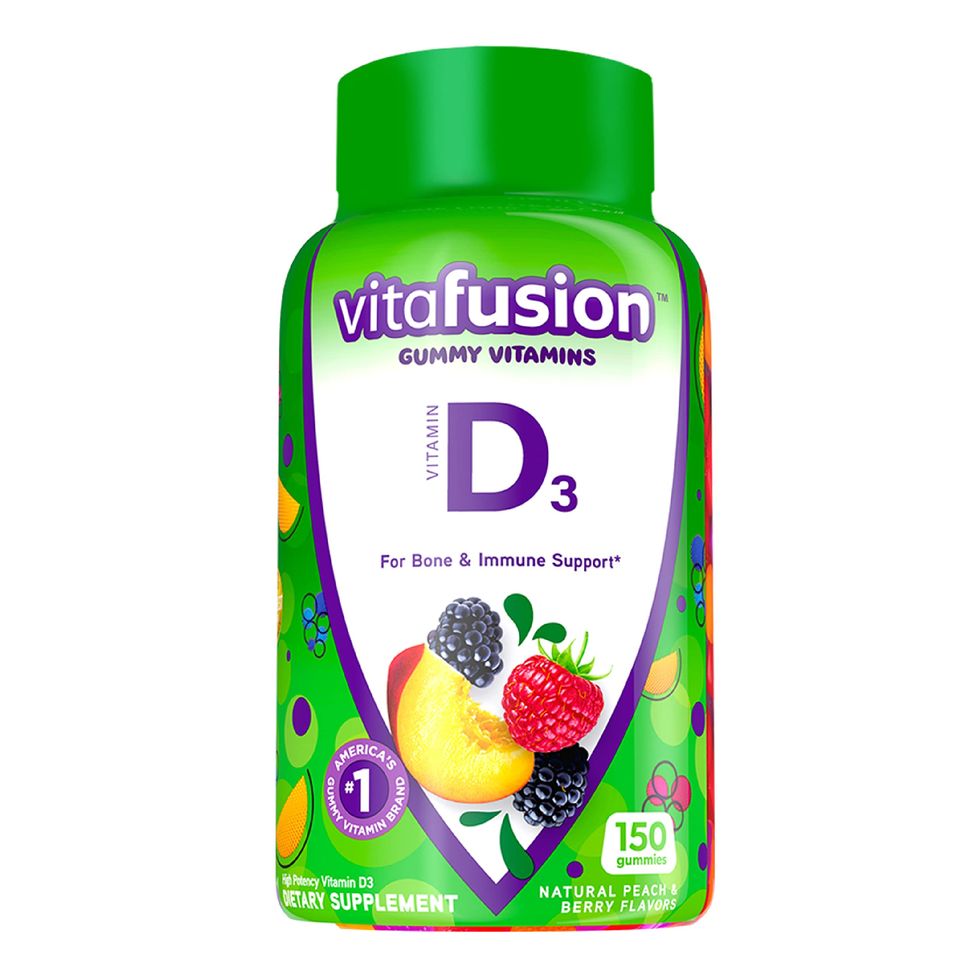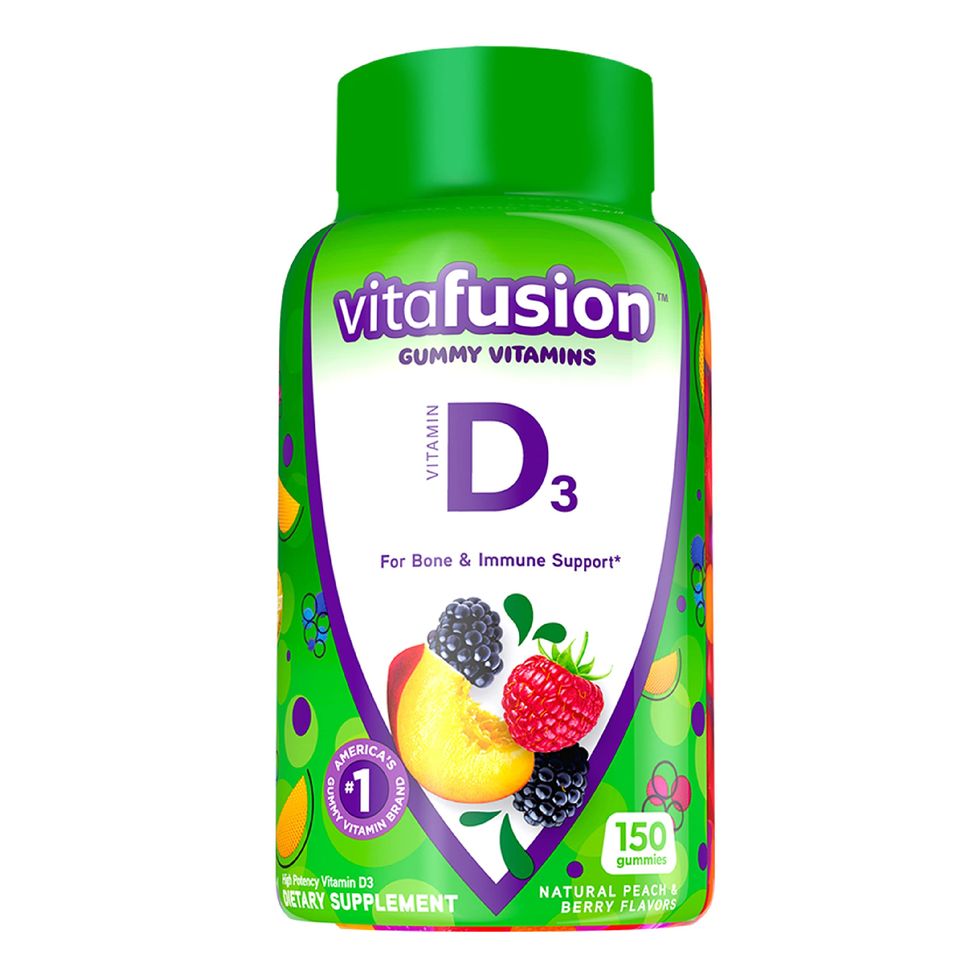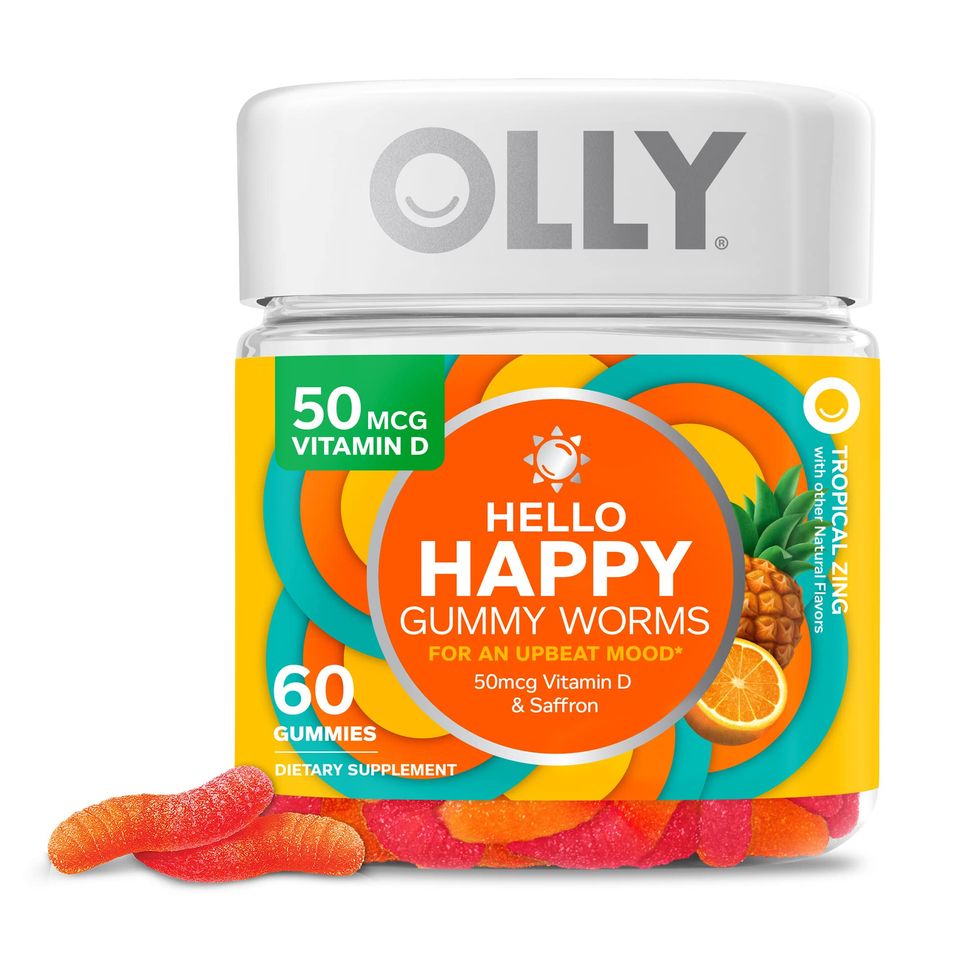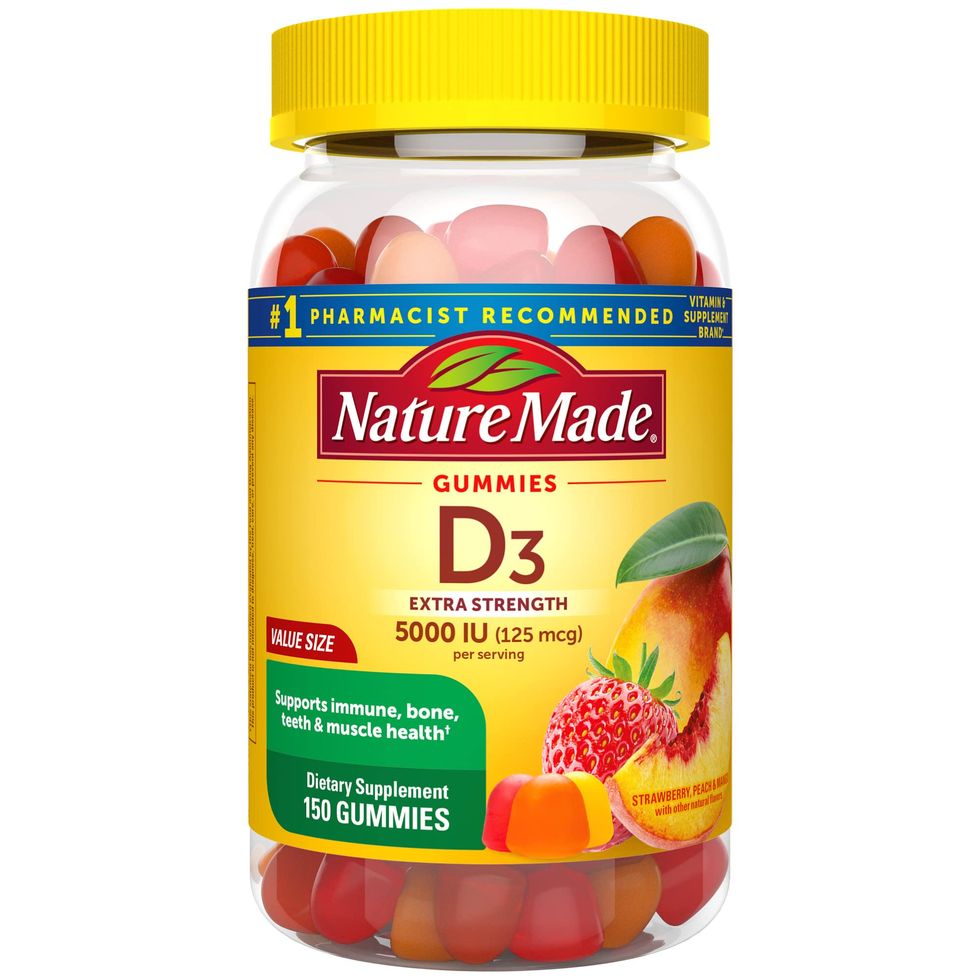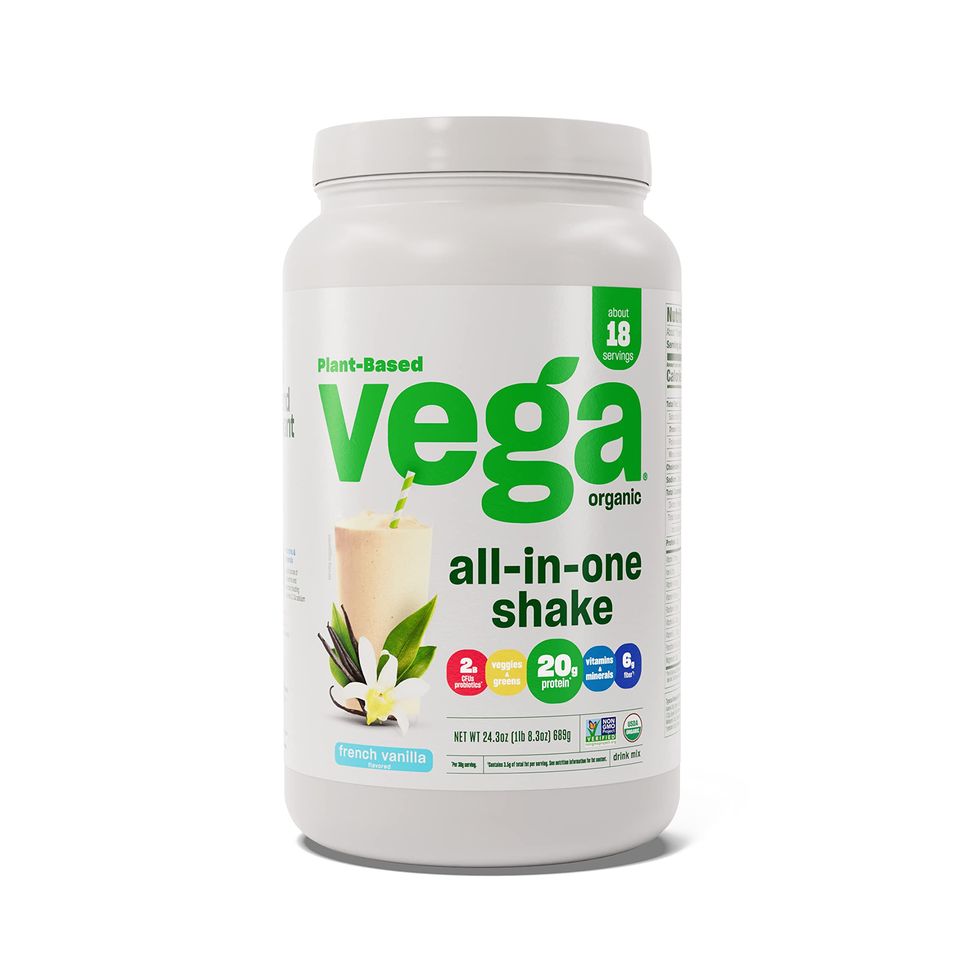If you manage multiple medications and supplements, it can be tricky to keep track of when to take them and how often. When it comes to vitamin D, otherwise known as the sunshine vitamin, people are wondering if there is an optimal time to take the pill. First thing in the morning? Just before going to bed? Really when is the best time to take vitamin D and why?
Vitamin D benefits
Vitamin D is a fat-soluble vitamin that helps our bodies absorb calcium, thereby supporting bone health, says Keri Gans, MS, RD, registered dietitian and author of The diet of small changes. It can also play an important role in our immune system as well decrease the risk of cardiovascular disease.
There are two sources of vitamin D: Vitamin D2 comes from fortified foods and mushrooms, while vitamin D3 it is produced in the skin when exposed to sunlight (which is why it is often known as the sunshine vitamin!) and is also present in foods of animal originexplains Chrissy Arsenault, MBA, RDN, LDregistered dietician.
The benefits of vitamin D, according to Arsenault, include:
- It helps the body absorb calcium and phosphorus, which are essential minerals for maintaining and building strong bones and teeth.
- Supports ImmunityVitamin D has often been touted for its benefits during the pandemic
- It helps contribute to muscle strength and reduces the risk of falls in the elderly
- It helps reduce inflammation in the body
How much vitamin D do you need each day?
According to the National Institutes of Health, the median adult daily value (DV) of vitamin D is 20 mcg (800 IU, or international unit), says Arsenault. Keep in mind that your individual needs may be higher or lower depending on your lifestyle and diet.
If you’re 70 and older, your daily dose should be closer to 800 IU, notes Gans.
When is the best time to take vitamin D?
The best time to take any vitamin is when you remember, says Gans. In other words, there is no best time and you can take it at any time of day that works best for your routine. Arsenault typically advises clients to take it first thing in the morning or right before bed so they don’t forget to take it. Consistency is key during supplementation.
That said, because vitamin D is a fat-soluble vitamin, your body absorbs it best when you take the pill with a meal containing some fat, whether it’s breakfast, lunch or dinner, says Gans.
Who should take vitamin D supplements?
Anyone can take a vitamin D supplement for its immunity and other health benefits, says Arsenault. However, people who would benefit the most from vitamin D supplements include:
- People who live in cold regions, experience extended winter months, or have limited exposure to sunlight where they are not outdoors enough to soak up their vitamin D3
- People with dark skin, as increased levels of melanin in the skin reduce the natural production of vitamin D3
- Older adults: Our skin’s ability to naturally produce vitamin D3 decreases with age
- People with medical conditions or surgery that can affect fat absorption, as vitamin D is a fat-soluble vitamin
- People who consume a plant-based diet, as most sources of vitamin D come from foods of animal origin
Overall, you should choose a brand that has third-party certification to ensure that what the ingredient label says on the package is what’s one hundred percent inside the vitamin, suggests Gans. Also, I would opt for vitamin D in the form of D3 (cholecalciferol) which is more readily available to the body than D2 (ergocalciferol).
Before buying a new supplement, Gans suggests checking your vitamin D levels and then discussing a recommended dose with your primary care physician or registered dietitian nutritionist.
No one likes taking pills, so Arsenault recommends gummy forms of vitamin D, as they’re tastier to take and as an indulgent treat while meeting your nutritional needs. There are many brands out there offering gummy vitamins including vitafusion which is the #1 adult gummy vitamin brand. 1, Nature Made and OLLY, just to name a few.
If you’d rather drink your vitamin D in a smoothie, Vega Organic All-In-One Shake contains 10 mcg, or 50 percent of your daily value (DV), of vitamin D while being completely plant-based, says Arsenault. The vitamin D in this product comes from mushrooms, which are natural sources of vitamin D2. Paired with almond or coconut milk that contains some fat and fortified vitamin D, this delicious smoothie should help meet your daily needs.

Magdalene, Preventions assistant editor, has a history with health writing from her experience as an editorial assistant at WebMD and her own research at the university. She holds degrees in biopsychology, cognition, and neuroscience from the University of Michigan and helps strategize for success across the globe. Preventions social media platforms.
#time #vitamin
Image Source : www.prevention.com
